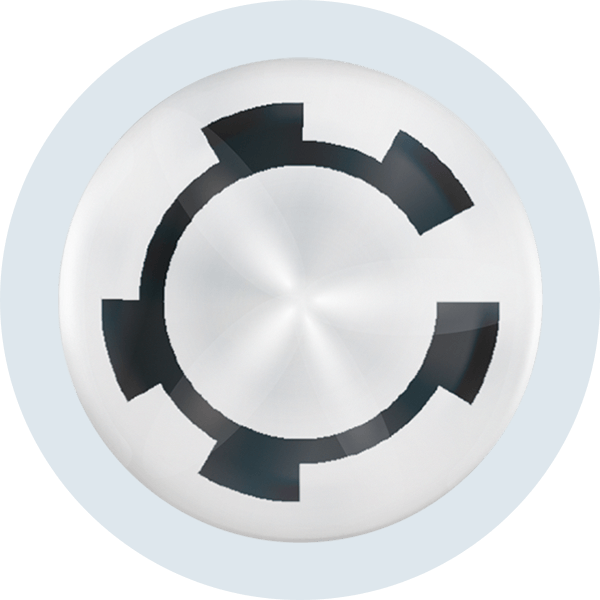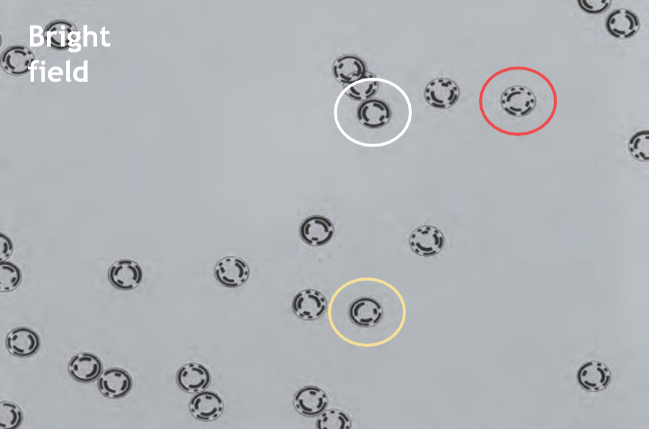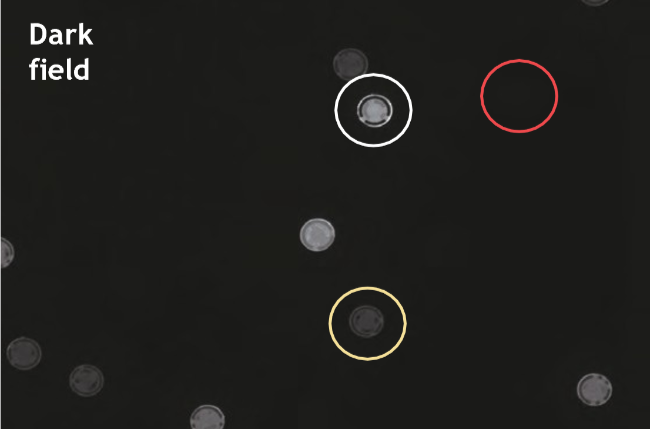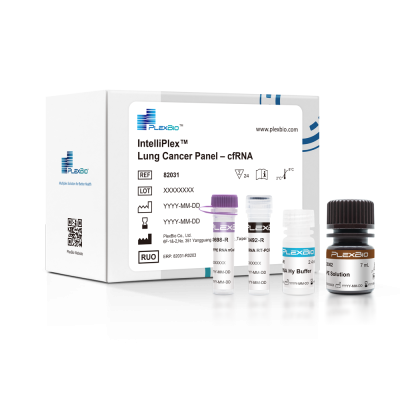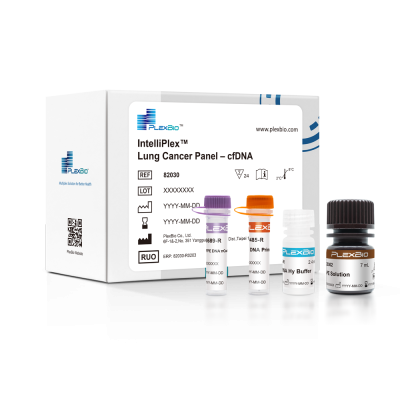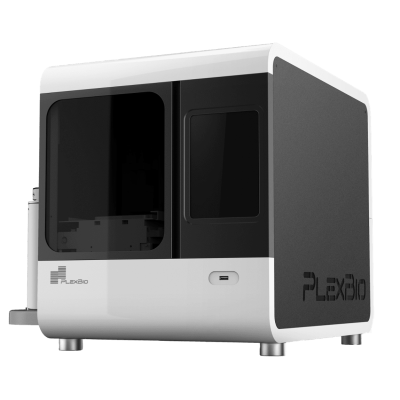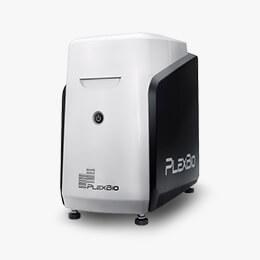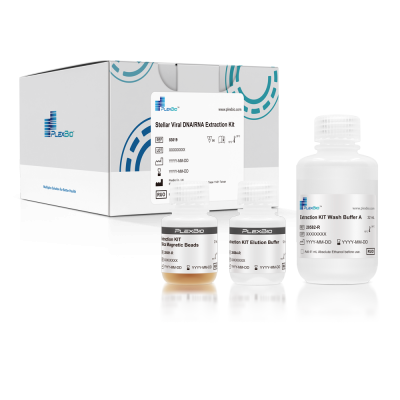Precise Results Generated By Credible πCode Platform
πCodeTM MicroDisc is an innovative technology made of silicon wafers and have an extremely tiny size of 40 µm in diameter. Each πCodeTM MicroDisc has an assigned distinct circular image pattern imprinted on its surface for multiplexing applications. A specific capture agent, which can be either nucleic acid probe or antibody, conjugated to its surface πCodeTM MicroDiscs tagged with different capture agents are pooled, enabling specific detection of multiple analytes in one-well reaction. It can be easily integrated into your routine molecular or immuno analysis protocols, and maximizing the detection targets in more sensitive way.
Using our πCode technology can also adopt to PlexBio's automated platform to flexibly meet the multiple detection targets and processing throughput required for your assays. πCodeTM multiplexing assays deliver precise assay information without extra time or effort required, allowing your assay easily.
Using our πCode technology can also adopt to PlexBio's automated platform to flexibly meet the multiple detection targets and processing throughput required for your assays. πCodeTM multiplexing assays deliver precise assay information without extra time or effort required, allowing your assay easily.
Principle of πCode Workflow
πCode™ Technology gives true multiplex capability in a single well to maximize data information from limited sample availability, dramatically increase throughput, and decrease assay cost.
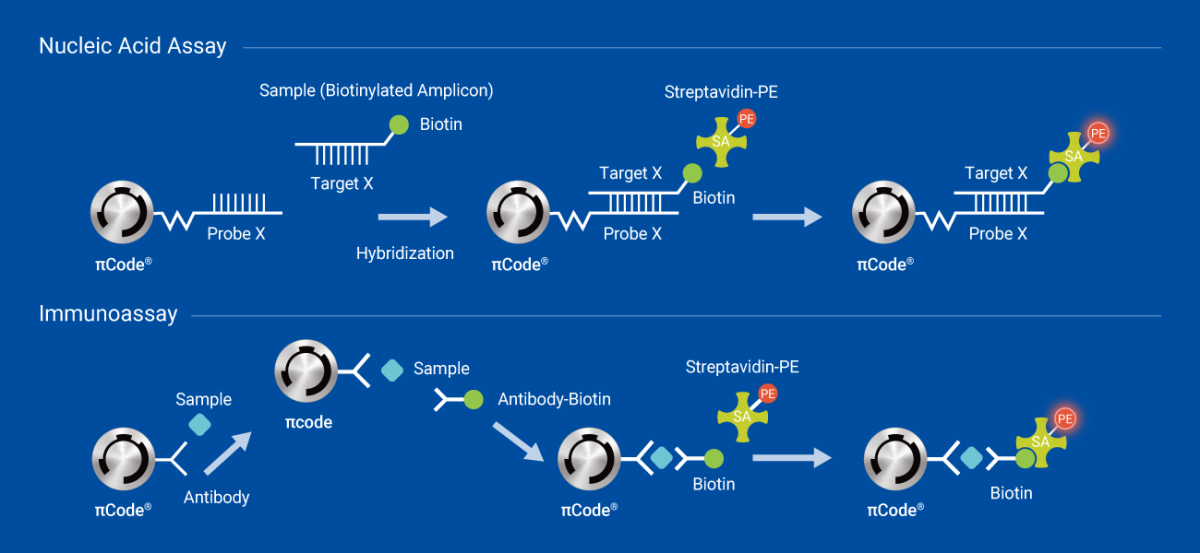

πCode™ MicroDiscs are manufactured to generate more than 85,000 distinct circular image patterns for multiplexing applications. To perform a πCode multiplexing test, conjugated πCode™ MicroDiscs with distinct circular image pattern were pooled together in a single well and reacted with samples, followed by hybridization and fluorescent labeling simutaneously. The assay detection was done by optical imaging fluorescence analyzer PlexBio™ 100 Analyzer, which uses the CCD camera to read the distinct image patterns under bright field and quantifies the analytes by reading the fluorescence signal intensity under dark field. The two images are cross referenced for detection of the targets and decoded by DeXipherTM software by turning raw data to an automated reporting with results interpretation in a user-friendly format.
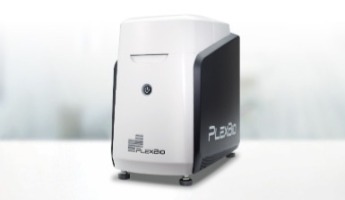
PlexBioTM 100 Analyzer takes dark field and bright field images for co-localization to identify the unique circular patterns imprinted on the πCode™ MicroDiscs and analyzing those targets with or without positive signals. The system automatically processes result interpretation and deliver result reports in 30 minutes.


πCode Multiplexing
Pooling All the Targets You Need to Make Your Detection Possible
-
STEP 01Thousands of unique patterns
imprinted on πCodeTM MicroDiscs
-
STEP 02Respectively Probe Coupling
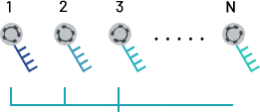
-
STEP 03Multiplexing πCode Master Mix
Ready For Detection
Features and Benefits
-
 No Bioinformatics Analysis Required
No Bioinformatics Analysis Required -
 Supreme Sensitivity
Supreme Sensitivity -
 Extensive Multiplexing Range
Extensive Multiplexing Range -
 Broad Target Detection
Broad Target Detection
πCODE™ Is The Best Choice For Liquid Biopsy Analysis
As cancer cells or cell-free DNA (cfDNA) from a tumor that is circulating into the blood allows a less invasive way to deliver crucial genetic information for tumor profiling than traditional tissue biopsies. The supreme sensitive testing method are needed for liquid biopsy testing due to the difficulties and limitations to capture enough cell-free DNA. The effective use of πCode™ technology with low sample input and high multiplexing throughput would be the best choice for assays.
| πCode | NGS | qPCR | |
|---|---|---|---|
 DNA input
|
10 ng | 25 ng - 1 ng | 5 ng - 100 ng |
 Sensitivity
|
0.05% - 1% | 1% | 2% |
 Multiplexing
|
Yes | Yes | Limited |
 Hands-on time
|
Short | Long | Medium |
 Bionformatics Analysis
|
No | Yes | No, but require data analysis |
 Turnaround time
|
3 - 5 hours | 1 - 2 weeks | 2 - 3 hours |
 Routine test
|
Fassible | Unfeasible | Fassible |
 Cost
|
Affordable | Expensive | Affordable |
πCODE™ APPLICATION
πCODE technology offers solutions to meet the needs of a variety of testing applications
-
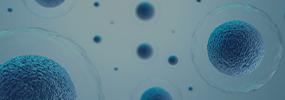 Molecular Diagnostic
Molecular Diagnostic -
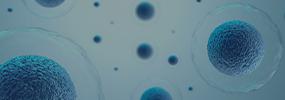 Liquid Biopsy
Liquid Biopsy -
 Cancer Research
Cancer Research -
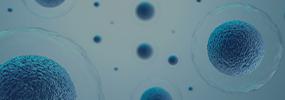 Infectious Disease
Infectious Disease -
 Genomic Research
Genomic Research -
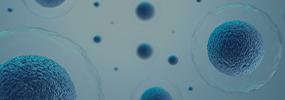 Life Science Research
Life Science Research -
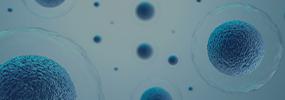 Partnering for Companion Diagnostics
Partnering for Companion Diagnostics -
 Pharmacogenetics
Pharmacogenetics -
 Genotyping
Genotyping -
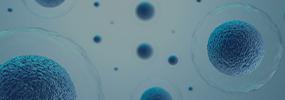 Respiratory Pathogen Testing
Respiratory Pathogen Testing -
 Gastrointestinal Testing
Gastrointestinal Testing -
 Immuno-Diagnostic
Immuno-Diagnostic -
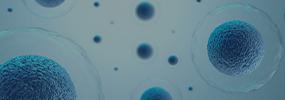 Proteomic Research
Proteomic Research












